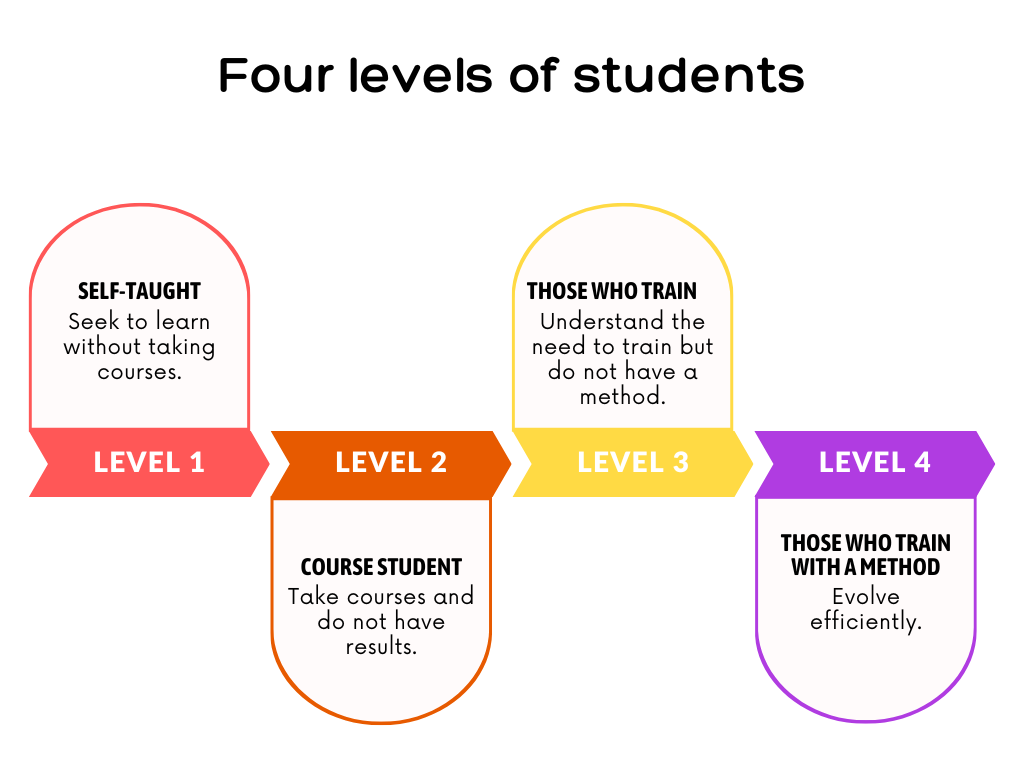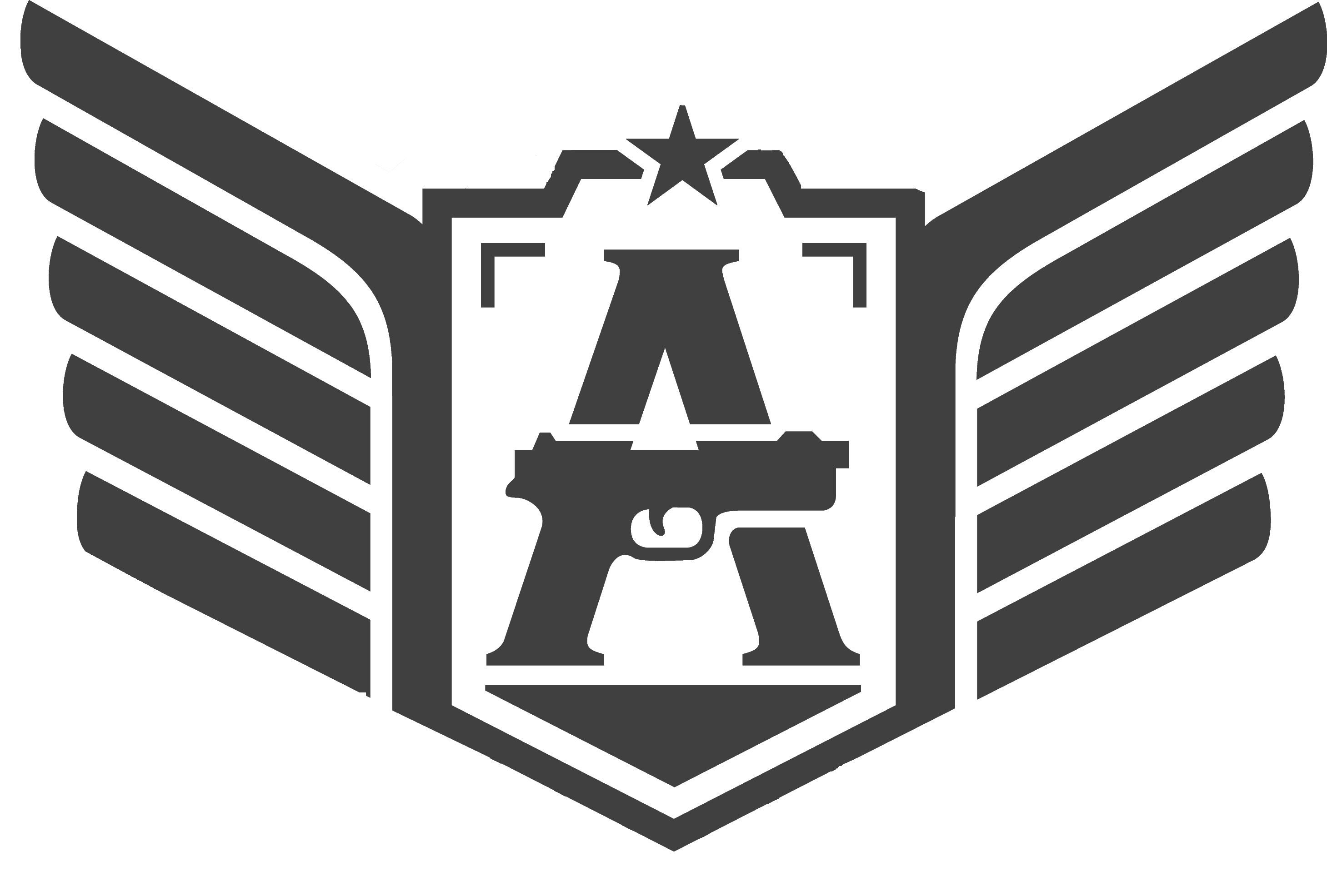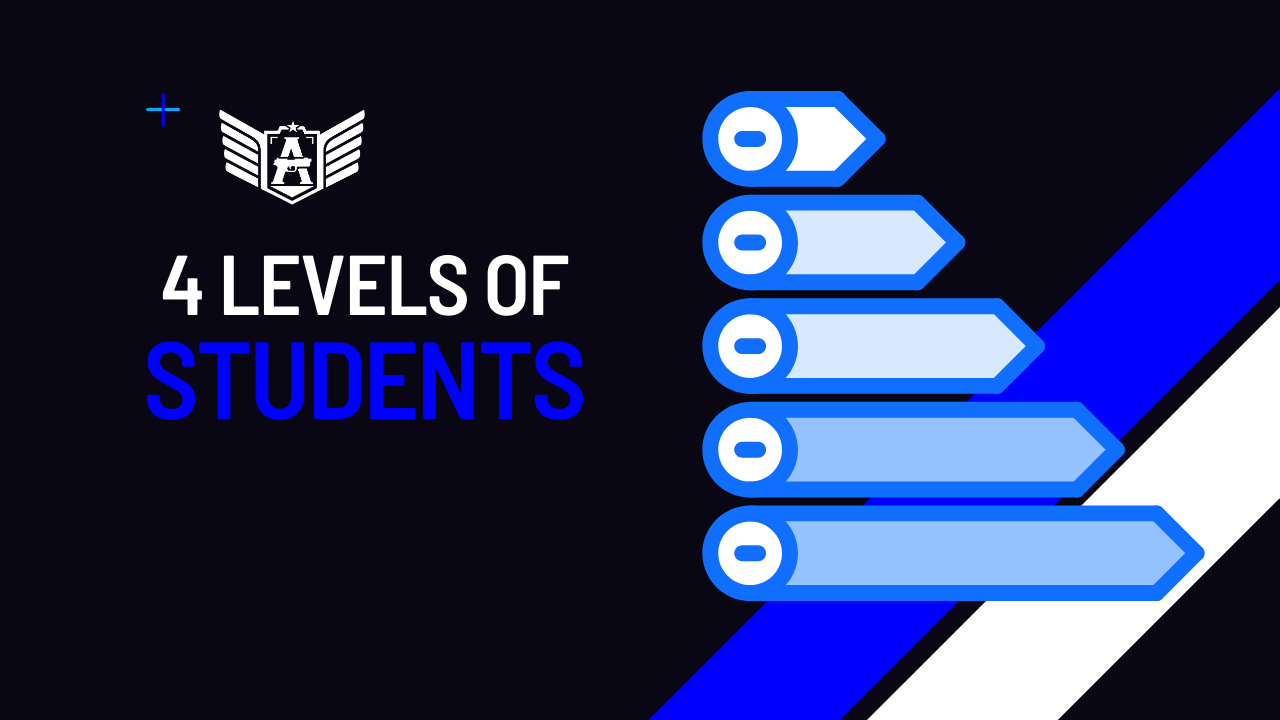
Have you ever observed that certain individuals seem to progress more effectively in honing their shooting abilities?
What do you think contributes to this phenomenon?
In my experience instructing shooting techniques, I’ve come to recognize distinct personalities among learners. These have been categorized into four distinct levels, as outlined below.
Level 0 – The Non-Student
We can hardly classify this individual as a learner. This category includes those who purchase a firearm and stash it away, believing it to possess some kind of enchanting power that will automatically mitigate any threats.
A level 0 student isn’t genuinely a student at all. They don’t even make an attempt to learn because they assume owning a firearm is sufficient for ensuring their protection.
Naturally, this isn’t the desired mindset for individuals aiming to safeguard themselves and their loved ones.
Level 1 – The Self-Taught
Level 1 students presume they don’t require formal shooting classes. They’re convinced that with enough ammunition, their firearm, and ample time at the shooting range, they can figure things out autonomously.
Let’s be realistic: nobody is truly self-taught. When you read a book, you’re not independently inventing new concepts. There’s an author endeavoring to teach you through the medium of the book.
Admittedly, given sufficient ammunition, a firearm, and time at a shooting range, there’s little doubt you would accomplish something over time. You would hit the target. However, multiple pathways exist to achieve the same goal, with only one of them being the optimal approach.
Hence, various individuals possess differing proprioceptions. How aware are you of the movements you execute while attempting to grasp a new movement pattern?
Granted, you could learn incorrectly and subsequently rectify your approach, or, even worse, you might jeopardize your safety by not genuinely comprehending the techniques.
Level 2 – The Course Enrollee
The second level comprises students who acknowledge that enrolling in a course is a prudent means of mastering combat skills.
However, the predicament lies in the fact that even after attending a course, regardless of its quality, the required knowledge isn’t fully acquired.
I often query my students: Do you practice any martial art? The response might be: Yes, Brazilian Jiu-Jitsu. Then I inquire: If I join a Jiu-Jitsu class on a Saturday morning, what belt rank will I hold by Monday? Chuckles ensue. I persist: If I partake in a BJJ course this weekend, will I be ready to face a black belt in competition by next week? Laughter once again.
Undoubtedly, to progress in BJJ, consistent training is essential. Therefore, considering this premise, when aiming for accolades, the necessity of training is evident. So, why do individuals hold unrealistic expectations concerning firearms training?
Level 3 – The Practitioners
Granted, training is an imperative requisite for acquiring combat skills.
Let me illustrate with an analogy. Do you engage in weightlifting? Have you frequented a gym?
Imagine I aspire to develop robust leg muscles. My strategy involves arriving at the gym at 8 a.m. and ceaselessly performing squats until 8 p.m.
Would I realize my objective?
At best, such a regimen would yield an injury. Moreover, by day’s end, my leg muscles would remain unchanged.
Even if I repeated this daily, the outcome wouldn’t vary.
It’s immaterial whether you’re versed in the optimal squat technique. Engaging in such training wouldn’t yield the desired leg muscle growth.
Exercising without a method is nonsensical. A correct approach exists for cultivating leg muscle growth.
And this principle extends beyond just leg muscles.
Level 4 – Methodical Practitioners
This is the pinnacle we aspire to reach.
If striving to accomplish a goal—combat skills, in this context—you must: Comprehend the optimal approach to achieve it. Precisely ascertain your current position and your intended destination. Implement a method for transitioning from point A to point B.
Level 4 students grasp that dedicating eight hours daily to squats or running a marathon every day is futile. They comprehend that an ideal approach exists for skill development, enabling them to achieve optimal outcomes with minimal exertion, conserving time and resources.
You don’t wish to procure a firearm and regard it as a talisman of fortune. Nor should you embark on a solitary learning journey when a wealth of individuals globally already possess the answers you seek. Participating in a weekend course shouldn’t deceive you into believing you’re fully equipped to defend your family. Engaging with firearms without a structured methodology, wasting ammunition and time, is not an advisable approach.





